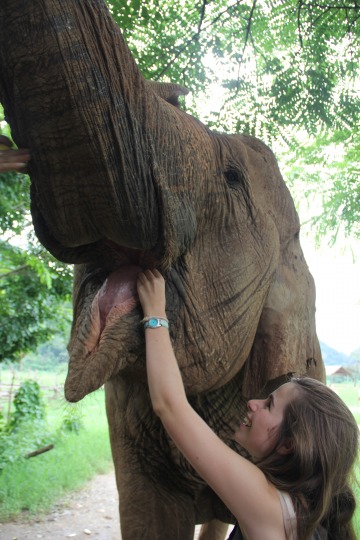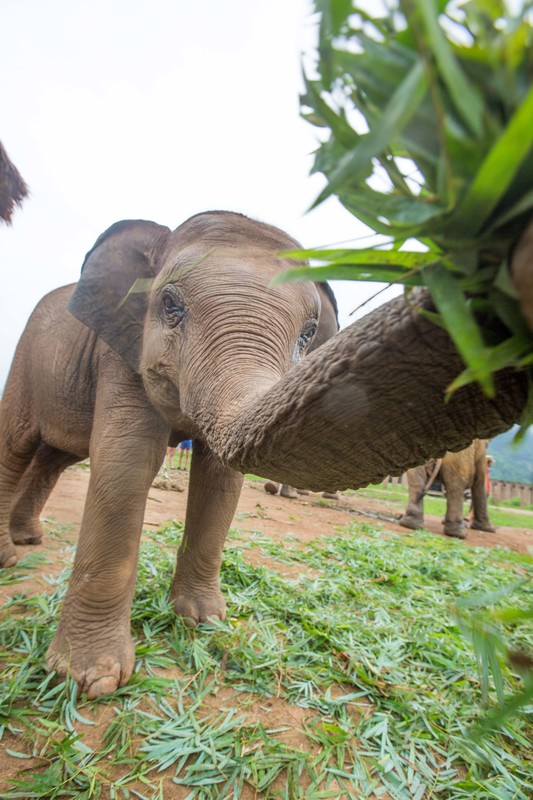
The Elephant Nature Park (ENP) is home to over thirty rescued elephants, there because they are no longer able to work in elephant-based industries like logging or inhumane trekking operations.
The reserve is vast, peaceful, and amazing. Waking up in your raised bamboo hut in the morning, you'll look out the window to see the red sun rising over a dusty bank of trees. Feet away, a mother elephant throws arcs of dirt over its back while a baby elephant ruffles through the tall grass with its trunk. And for the rest of the day you'll be a part of their family. It's like living in a wildlife documentary, seeing these amazing creatures in their homeland!
Elephant Nature Park was founded twenty years ago in an effort to provide sanctuary for those elephants who, disabled or otherwise unable to work, would have been severely mistreated or killed.
The reserve is vast, peaceful, and amazing. Waking up in your raised bamboo hut in the morning, you'll look out the window to see the red sun rising over a dusty bank of trees. Feet away, a mother elephant throws arcs of dirt over its back while a baby elephant ruffles through the tall grass with its trunk. And for the rest of the day you'll be a part of their family. It's like living in a wildlife documentary, seeing these amazing creatures in their homeland!
Elephant Nature Park was founded twenty years ago in an effort to provide sanctuary for those elephants who, disabled or otherwise unable to work, would have been severely mistreated or killed.

These elephants are given a chance to live and be cared for in a peaceful setting. Eventually many of the elephants at the ENP will be released to live as they would in the wild on a forest reserve owned by the ENP. Many of the elephants have been rescued from Burma, where logging is still legal. Each elephant has a mahout, a trainer who stays with his elephant for the elephant’s life, and many of the mahouts have also escaped from Burma’s oppressive government regime. The park provides each mahout with food, shelter, and a fair wage in addition to a chance to make additional income by selling souvenirs on consignment in the park's gift shop.
In addition to serving as a sanctuary, ENP strives to preserve and repair the struggling rain forest habitat in its surrounding area. The park reintroduces native species to around 30 acres per year, and will do so for the next five years, in order to turn abandoned farmland back into climates suitable for elephants to live and breed.
The best part of the ENP experience is the time volunteers have to independently learn about and observe the elephants in their natural interactions.